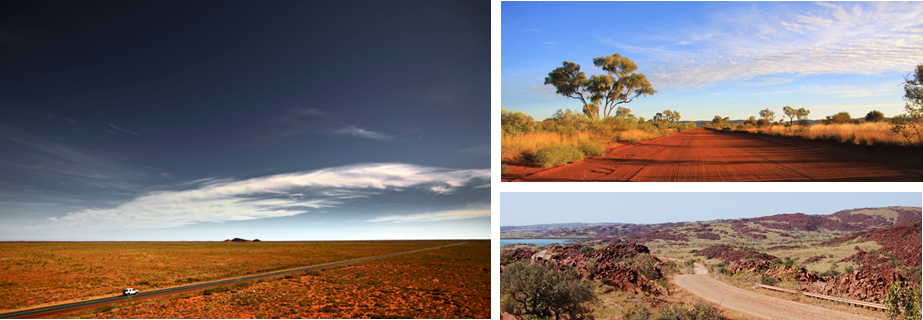
It is essential to carefully plan your trip before you start by purchasing a detailed road map. As many towns are remote, if you find yourself in trouble, assistance could be hours away. Be aware of the limits of your vehicle and take your time while travelling.
Driver fatigue is responsible for many accidents. It is important to take breaks and not to try to cover too much distance at a time, enjoy the experience. Make certain you advise a reliable contact of your intended destination and estimated return date, being sure to let them know when you have returned.
It’s essential that your vehicle is thoroughly checked before you depart. Not only is it dangerous to break down in the outback, it can be expensive. When travelling on unsealed roads, four wheel drives and off road camper trailers / caravans are recommended. A comprehensive tool kit, water, at least two spare tyres and spare parts should be kept as standard – along with the knowledge of how to use them!
During the summer period (November to April) sealed and unsealed roads can be open for travel one day and completely flooded the next. Authorities provide road updates and weather warnings accordingly to assist travelers. Regardless of your vehicle, do not attempt to traverse roads that have been closed by the authorities under any condition. Not only do you put your own safety at risk, you also put at risk those you come to assist you.
Road trains are a unique part of travelling in Northern Australia. Extra caution is advised when overtaking road trains that can be more than 50 metres in length. On unsealed roads dust can be kicked up completely obscuring vision and throwing stones – the only time to overtake is when you can clearly see ahead.
Due to the sheer isolation of the North West, it is possible for bush fires to rage for several days before it is noticed and brought under control. The lighting of fires is extremely dangerous, care should be taken at all times and a campfire should never be left unattended.
Many stations and farms are unfenced and it’s not uncommon to encounter wandering stock and wildlife, serious accidents can occur due to collisions with kangaroos, cows and various other animals. Take particular care when travelling at dawn and dusk as these are the most dangerous times. Slow down, keep a lookout, and if possible, avoid driving at night.
Australia’s North West has the second largest tidal range in the world. Tidal water can move very quickly, catching you and your boat or vehicle unaware – so if you are undertaking any activity by the water, be aware of local tidal movements. Check with your local Visitor Centre.
Unfortunately, some travelers have their holiday cut short due to illness or accident. If you take a prescribed medication ensure you don’t run out and make sure you have a script renewal from your doctor. When travelling to remote areas always carry adequate supplies of water and a comprehensive first aid kit. Mosquitoes and sand flies can carry diseases, so make sure to use appropriate insect repellents and cover arms and legs with loose clothing particularly at dawn and dusk.



